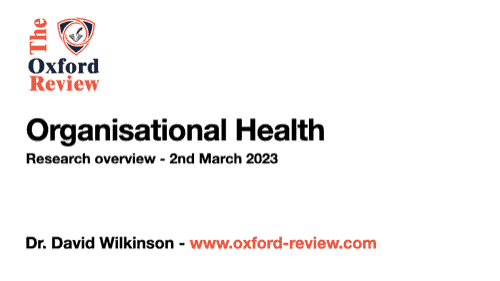- in Blog , Podcasts by David Wilkinson
Why Social Identity During Organisational Change is Critical

Understanding the importance of social identity during organisational change is crucial for fostering a positive work environment and ensuring a smooth transition during organisational change events. During organisational change employees often have to adapt to new roles, relationships, and expectations. In effect these change people’s sense of identity in the organisation. Acknowledging and nurturing individuals’ […]
Read more






